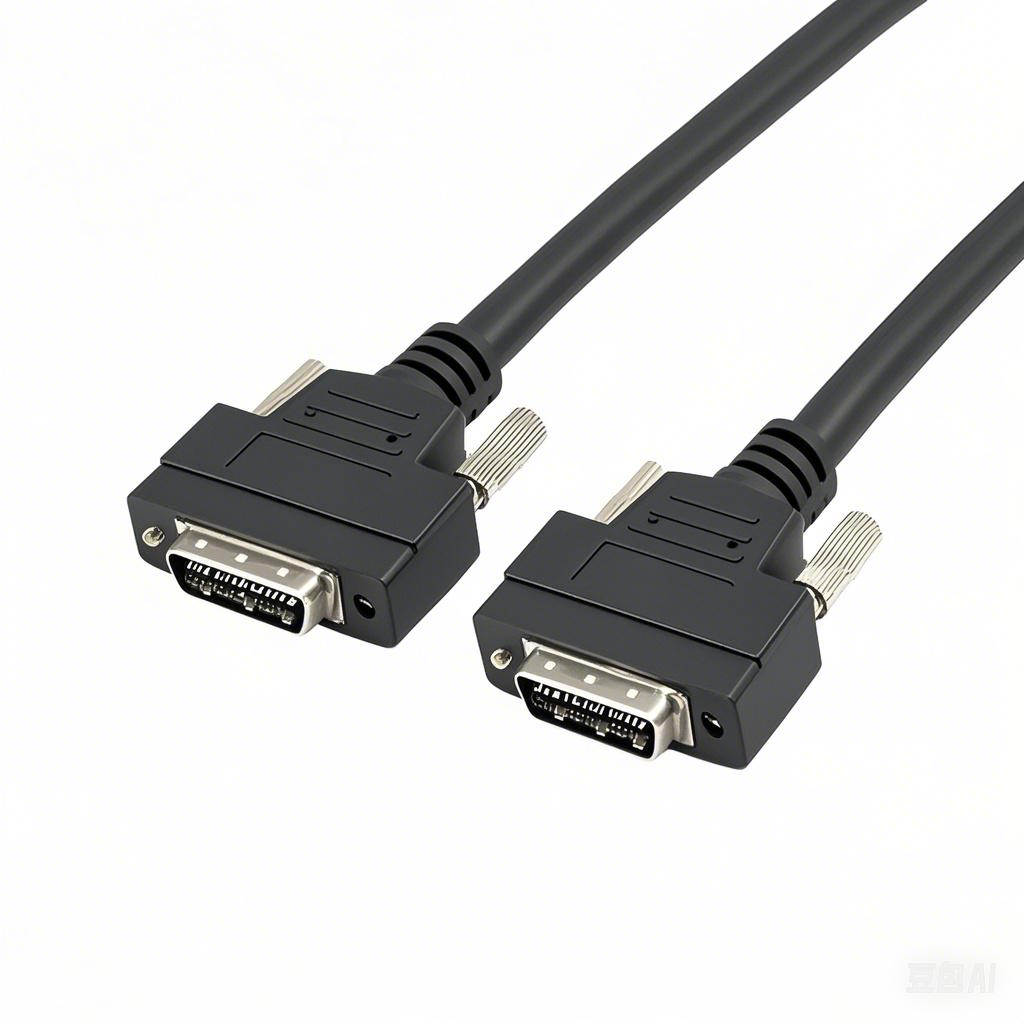High-Speed Data Transfer Machine Vision Cables: Keeping Your Vision S...
In the fast-paced world of automation and quality control, machine vision systems are the eyes of the operation. But even the most advanced cameras and processors can stumble if the connection between them – the cable – isn’t up to the task. That’s where High-Speed Data Transfer Machine Vision Cables come in. They’re the unsung heroes, ensuring critical visual data flows quickly, reliably, and accurately.
What Makes Them Different? Not Just Any Wire!
Think of transferring high-resolution images or streaming video at high frame rates. This generates massive amounts of data that needs to travel fast (we’re talking Gigabits or even Terabits per second!) from the camera sensor to the processor.
Ordinary cables simply can’t handle this:
- Data Overload: Standard cables lack the bandwidth needed, causing blurry images, dropped frames, or system slowdowns – imagine watching a video that constantly buffers.
- Electrical Noise: Factories are full of electrical interference (motors, welders, drives). Low-quality cables act like antennas, picking up this “noise,” corrupting the signal, and causing false readings or system failures.
- Signal Fading: Over longer distances, weak signals carried by inferior cables degrade significantly, losing detail and contrast.
High-speed machine vision cables are engineered to overcome these challenges.
Key Features for Flawless Vision:
- Extremely High Bandwidth: Designed for protocols like CoaXPress (CXP), Camera Link, Camera Link HS, USB3 Vision, GigE Vision, and emerging standards (e.g., 10GigE, 25GigE, CoaXPress 2.0+, HDBaseT). They provide the wide “data highway” needed.
- Robust Shielding: Multiple layers of specialized shielding (like foil and braid) are crucial. This creates a protective barrier against electromagnetic interference (EMI) and radio frequency interference (RFI), keeping your signal pure. Look for high coverage percentages (e.g., ≥ 85% braid coverage).
- Precise Impedance Matching: Cables like coaxial types require a very specific electrical resistance (impedance) to match the camera and frame grabber (commonly 75 ohms for video, 50 ohms for some data). Mismatches cause signal reflections and distortion.
- High-Quality Connectors: Connectors like ruggedized CX4 (CXP), DRC (CXP-over-Dock), SDR/HDR (Camera Link HS), MDR/X-code (Camera Link), 8-pin Mini-C (USB3), iPass (10G+ Ethernet), or Hirose types are designed for secure mating, shielding continuity, and repeated plugging/unplugging.
- Low Signal Loss (Attenuation): Made from premium conductors and dielectrics, these cables maintain signal strength over longer runs better than cheaper alternatives.
- Durability: Industrial environments demand tough cables. Look for features like:
- Flexible yet abrasion-resistant outer jackets (e.g., PUR, PVC).
- Strain relief at connector boots.
- Oil, chemical, and sometimes high-temperature resistance.
Why Using the Right Cable Matters:
Using inadequate cables is a recipe for problems:
- Reduced Inspection Accuracy: Blurriness, noise, or missing frames lead to false passes (bad product gets through) or false fails (good product is rejected).
- System Instability & Downtime: Intermittent errors cause unpredictable crashes or halts, stopping production lines.
- Frustrating Troubleshooting: Signal issues can be intermittent and hard to diagnose, wasting valuable engineering time.
- Lost Productivity & Revenue: All of the above translates directly to higher costs and lower output.
Choosing the Right High-Speed Vision Cable:
- Know Your Protocol: What interface standard does your camera and frame grabber use (e.g., CoaXPress 2.0, USB3 Vision GenICam, 10GigE)? This dictates the cable type needed.
- Distance Matters: Consult specifications for the maximum reliable distance for your specific cable type and data rate. Higher speeds often mean shorter max distances.
- Environment is Key: Consider exposure to chemicals, oils, extreme temperatures, UV light, and flexing/twisting requirements. Choose a jacket material that can withstand it (e.g., PUR for harsh chemical/oil/flex, PVC for general indoor).
- Don’t Skimp on Shielding: Opt for cables known for excellent EMI/RFI shielding performance. Ask for shielding effectiveness specs.
- Check Connector Integrity: Ensure connectors match exactly and provide strain relief. Proper mating is critical for high-speed signals.
- Quality Suppliers: Source from reputable manufacturers specializing in machine vision cabling (e.g., companies like Matrix, BitFlow Components Group, Micro-Coax, MVTec Software partners, TKH Group brands). They understand the stringent requirements.
In a Nutshell:
High-Speed Data Transfer Machine Vision Cables are vital components, not mere accessories. They ensure your vision system’s eyes (cameras) can reliably and rapidly communicate crucial visual information to its brain (processor). By investing in the right cable designed for your specific high-speed protocol and environment, you safeguard the accuracy, stability, and efficiency of your automated vision tasks. When image data matters most, don’t let a cheap cable be your bottleneck or failure point. Choose high-speed precision.











